This collection of teaching resources for both primary and secondary classrooms might help you mark this day with your class.
When is Holocaust Memorial Day?
Holocaust Memorial Day takes place every year on 27 January, and marks the liberation day of Auschwitz-Birkenau, the largest Nazi death camp, in 1945.
In the years since, this date has become internationally recognised as the day we remember the six million Jews murdered in the Holocaust, and the millions of other innocents killed under the Nazi regime. We also take time to remember the lives lost in subsequent genocides in Cambodia, Rwanda, Bosnia and Darfur.
2025 marks the 80th anniversary of the liberation of Auschwitz-Birkenau, and the 30th anniversary of the genocide in Bosnia.
Due to the sensitive nature of the subject matter, we strongly advise teacher viewing before watching with your pupils.
Primary resources
Explore our primary collection including the story of Milena Fleischmann's journey to England in 1939 as part of the 'kindertransport' arranged by Sir Nicholas Winton.
Holocaust Memorial Day - KS2 Assembly Framework. documentHolocaust Memorial Day - KS2 Assembly Framework
With this assembly framework you can watch pupils Beatrice and Lamek meet Steven Frank at Croydon Airport Museum. Steven tells them how in WW2 Nazi Germany tried to take over Europe and destroy the Jewish people.
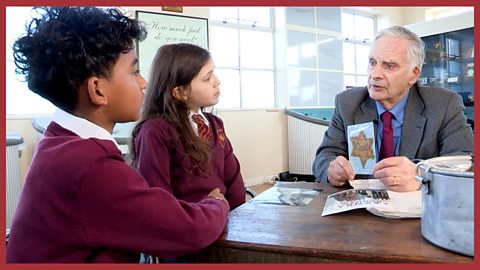
Sir Nicholas Winton (1909 - 2015) videoSir Nicholas Winton (1909 - 2015)
Barbara Winton - daughter of Sir Nicholas Winton - recounts events in 1938/9 when her father arranged the rescue of 669 children from Prague at the start of World War Two.
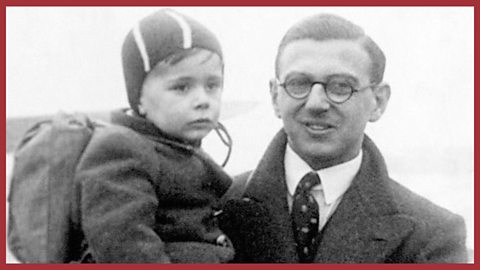
The last train from Prague. videoThe last train from Prague
Prague 1939. Nine year old Milena Fleishmann is about to start a long journey from her home in Prague to England. Milena is one of those children leaving Nazi-occupied Czechoslovakia on one of the trains that became known as the 'kindertransport'.
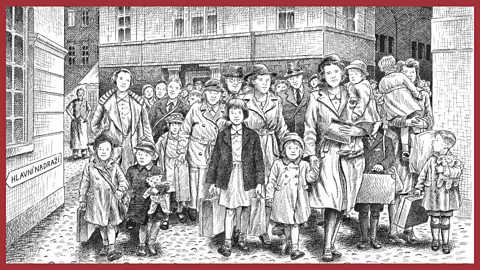
Finding my Family: Holocaust. videoFinding my Family: Holocaust
In this Newsround special, Holocaust survivor Steven Frank takes his teenage granddaughter Maggie on a journey to learn about his experiences during the Holocaust.
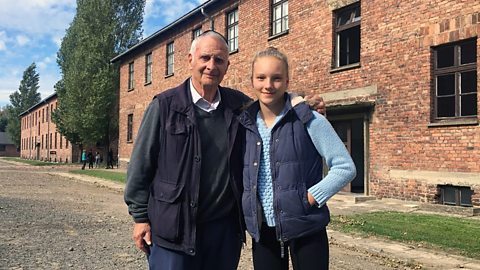
Secondary resources
Our secondary resources include a new assembly framework, featuring an interview with holocaust survivor John Hajdu MBE.
Holocaust Memorial Day 2025 – secondary assembly. videoHolocaust Memorial Day 2025 – secondary assembly
Emma-Louise Amanshia meets John Hajdu MBE to hear about his experiences of surviving the holocaust.
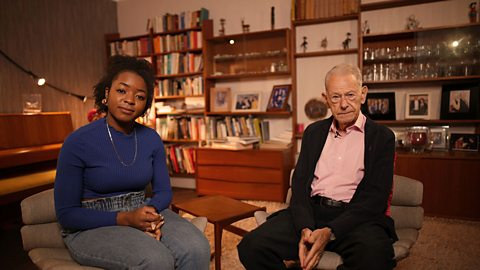
Children of the Holocaust. collectionChildren of the Holocaust
A part animated, part real-life interview series telling the stories of people who witnessed the Holocaust first-hand.
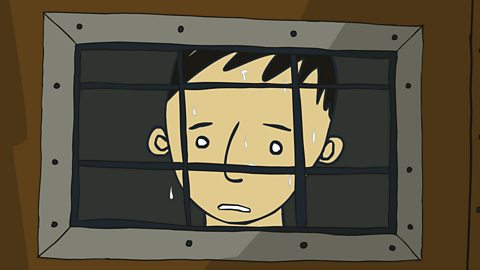
The Last Survivors. collectionThe Last Survivors
A series of short films from a landmark BBC documentary about the last survivors of the Holocaust living in Britain today, as they reflect on their childhood and how it has affected the rest of their lives.
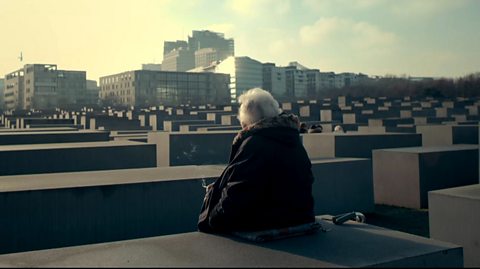
The Eichmann Show. collectionThe Eichmann Show
This series of short films uses a combination of archive footage, dramatisation and interviews with people involved in the television production and the trial to introduce students to the groundbreaking trial of Adolf Eichmann.
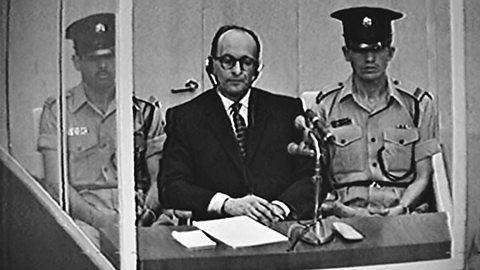
WW2: The Holocaust year by year. documentWW2: The Holocaust year by year
A timeline of the events that unfolded in Europe between 1933 and 1946. What happened? And how much was known at the time?
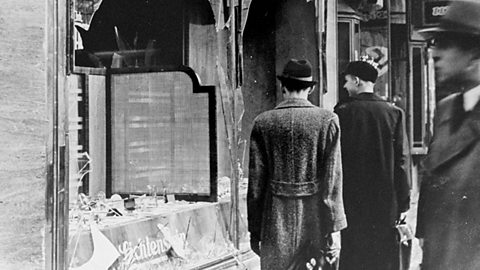
How did a pregnant woman survive the Holocaust? videoHow did a pregnant woman survive the Holocaust?
The story of Anka, who was pregnant when she arrived at Auschwitz, yet managed to survive and give birth to a daughter, Eva.
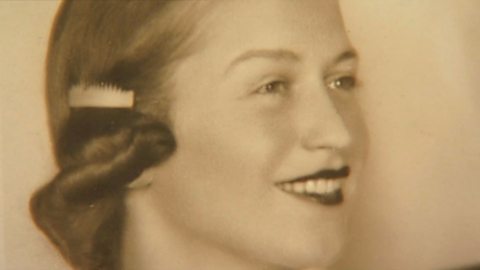
What does Rudolph Höss' evidence tell us about Auschwitz? videoWhat does Rudolph Höss' evidence tell us about Auschwitz?
Dan Snow introduces a report about the role of Rudolph Höss, the commandant of Auschwitz, in the Holocaust, based on the testimony he wrote before his trial.
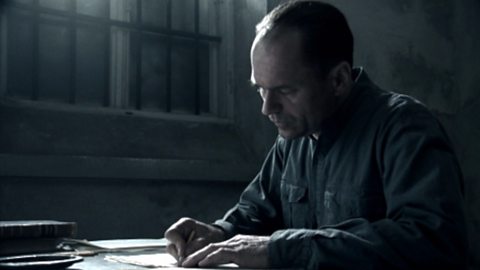
What were conditions like at Auschwitz? videoWhat were conditions like at Auschwitz?
Dan Snow introduces a short film about the brutal conditions faced by people at Auschwitz, including testimony from a survivor.
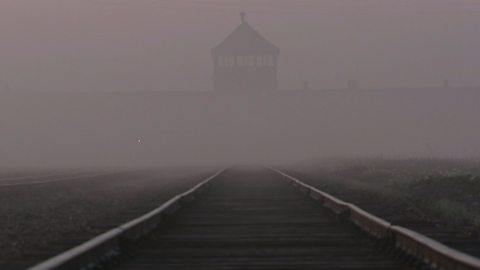
How did Auschwitz expand? videoHow did Auschwitz expand?
Dan Snow introduces a short film about the expansion of Auschwitz to deal with the number of Jewish people being transported to concentration camps.
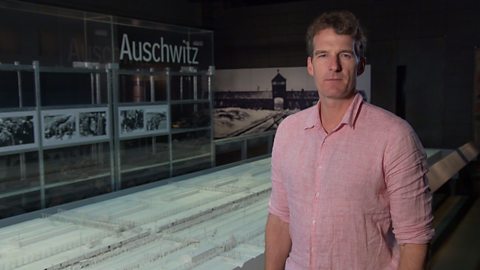
What happened in the gas chambers at Auschwitz? videoWhat happened in the gas chambers at Auschwitz?
A report about the gas chambers at Auschwitz, including some of the testimony from Rudolph Höss.
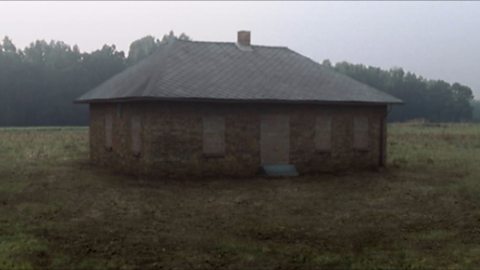
How did the use of gas chambers develop in the Holocaust? videoHow did the use of gas chambers develop in the Holocaust?
A look at the introduction of gas chambers at Auschwitz, how the Nazis started using gas vans and then going on to use gas chambers at camps.
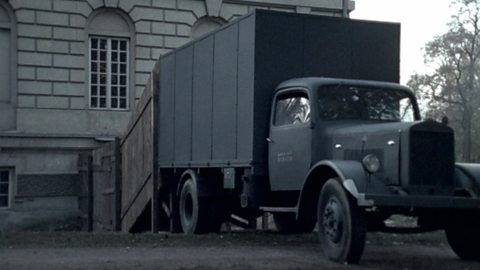
Surviving genocide: Antoinette’s story. documentSurviving genocide: Antoinette’s story
A survivor of the genocide in Rwanda tells BBC Bitesize why she chose to focus on forgiveness.
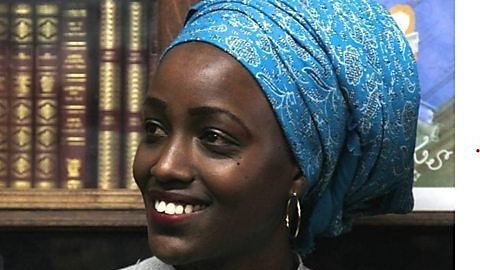
Internal learning-related resources
External learning-related websites
- Campaign Against Antisemitism - Resources for use by teachers in their lessons about tolerance.
- Foundation Stones - Teaching resources to help students create personal contributions to the new UK Holocaust Memorial and Learning Centre.
- Holocaust Matters: The Story of Ernst Bornstein - An interactive educational tool run by the family of Holocaust survivor Dr Ernst Israel Bornstein.
- Holocaust Memorial Day Trust - Resources about the Holocaust and genocide as well materials to help you plan your own Holocaust Memorial Day activity.